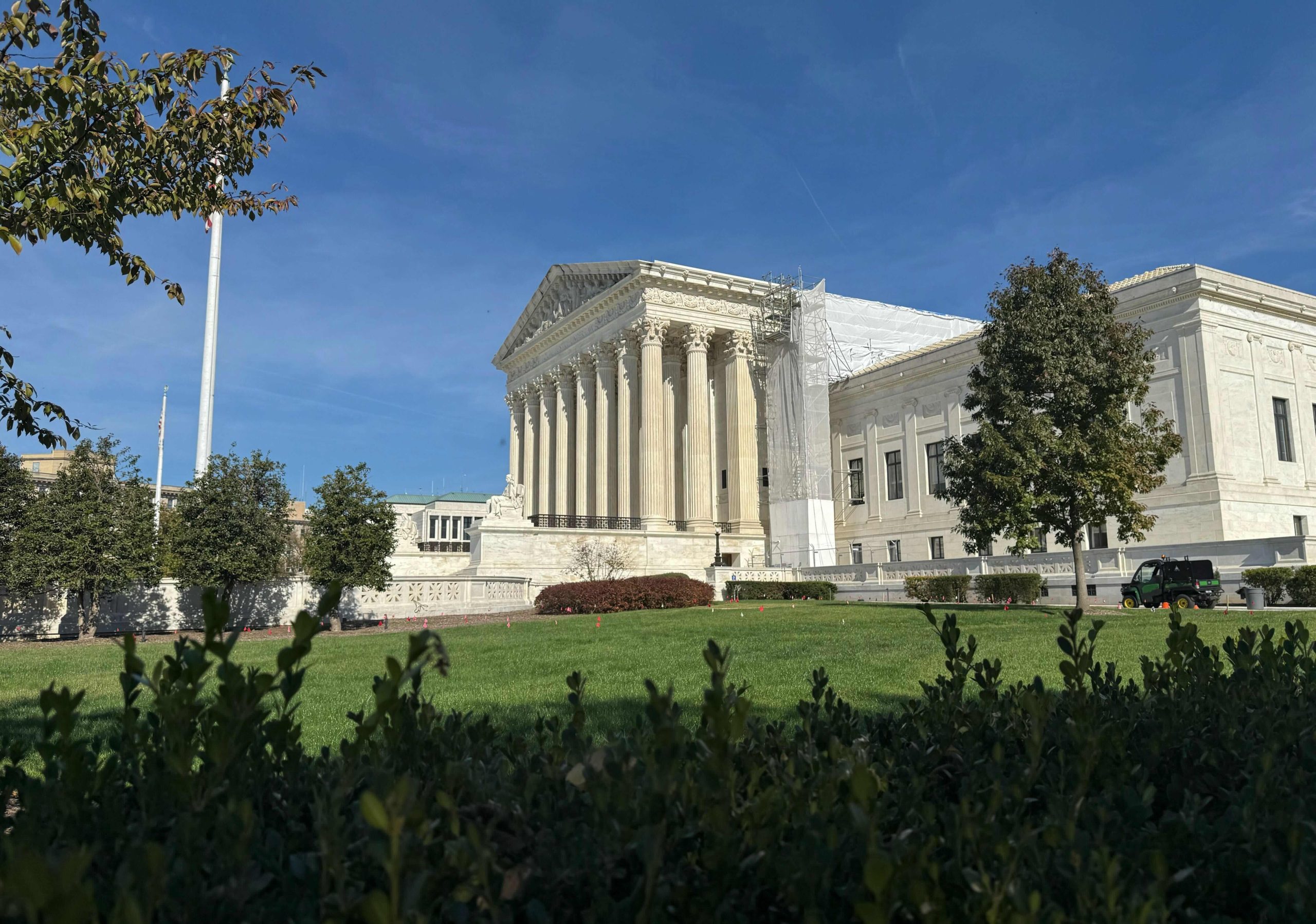CASE PREVIEW
on Nov 27, 2024
at 4:51 pm

The courtroom will start its December session on Monday. (Katie Barlow)
When somebody makes a cost to a creditor shortly earlier than submitting for chapter, the Chapter Code requires the creditor to return the funds. However whether or not those self same obligations apply to the Inner Income Service is much less clear. On Monday, the justices will take into account whether or not the IRS is protected by sovereign immuinity from the requirement to return funds from bancrupt debtors that non-public collectors face.
The case, United States v. Miller, includes Part 544(b) of the Chapter Code, which permits the chapter trustee to “keep away from” – that’s, invalidate and get well – “any switch … that’s voidable beneath relevant legislation by a creditor holding” a legitimate declare towards the debtor.” The supply often applies to permit the trustee to get well transfers, usually referred to as “fraudulent conveyances,” {that a} debtor makes shortly earlier than chapter.
The debtor on this case, All Resort Group, Inc., made a cost to the IRS to repay earnings taxes owed by its homeowners about three years earlier than it filed for chapter. As a result of the corporate acquired no worth in trade for these tax funds (which paid money owed owed by its homeowners), and since the corporate was bancrupt on the time, they’re the form of cost lined by Utah’s Uniform Fraudulent Transfers Act. Below that statute, the corporate usually would have been in a position to get well the funds both from the IRS (to whom the cash was paid) or from the homeowners (who benefitted from the funds). For what it’s value, the identical factor could be true in most if not all states within the nation, as most states have a model of a uniform state legislation permitting restoration of such funds.
When the corporate filed for chapter, the trustee within the firm’s chapter continuing, David Miller, filed an motion looking for to get well the funds from the IRS. The large downside is that the cost was made to the IRS relatively than a personal creditor. As a result of the IRS is entitled to sovereign immunity, collectors couldn’t sue it beneath the Utah Uniform Fraudulent Transfers Act. Accordingly, the IRS argues to the justices, there is no such thing as a precise creditor that might have sued the IRS beneath Utah legislation. From the IRS’s perspective, the dearth of an precise creditor signifies that it is protected against legal responsibility beneath Part 544(b).
Miller factors to Part 106 of the Chapter Code, which incorporates an specific waiver of the federal government’s sovereign immunity within the Chapter Code: “However an assertion of sovereign immunity, sovereign immunity is abrogated as to a governmental unit … with respect to” a number of sections of the Chapter Code, together with Part 544.” To be clear, Part 106(a)(3) specifies that the aid a chapter courtroom can grant towards the federal government features a “judgment awarding a cash restoration,” and Part 101 defines “governmental unit” to incorporate not solely the “United States” itself, but additionally “any “division, company, or instrumentality of america.”
The federal government’s argument is a purely literalist studying of Part 544(b): As a result of Part 106 of the Chapter Code wouldn’t apply in a state courtroom continuing beneath the Utah Fraudulent Conveyance Act, there in reality is not any creditor that might have sued the IRS efficiently beneath that statute.
Miller has two highly effective arguments towards that provision. The primary is that it vitiates the express reference to Part 544 in Part 106. To say that Congress hasn’t particularly solved this downside when it wrote a statute that particularly mentions Part 544 may appear to be a bit a lot.
Furthermore, the historical past of the supply makes that appear even much less seemingly. In Hoffman v. Connecticut Department of Income Maintenance, the courtroom held that the model of Part 106 within the authentic Chapter Code was not sufficiently particular to waive sovereign immunity. Congress responded by promptly amending the Chapter Code to incorporate the eminently particular provision from which I quote above. I relatively doubt the justices will need to ship this again to Congress a second time.
Miller’s second argument – which I discover fairly compelling as a studying of the textual content – factors out that the statute solely requires that the switch be “avoidable” by an precise creditor, not that or not it’s recoverable from the federal government. Right here, beneath Utah legislation (and typical fraudulent conveyance legislation), the collectors could be entitled to get well the quantity of the challenged switch not solely from the individual to whom it was made (the IRS) but additionally from the individuals “for whose profit” the switch was made (the homeowners of the corporate). As a result of these homeowners would not have sovereign immunity, they’d have been defendants obtainable in a go well with beneath state legislation, and thus ought to make the switch voidable beneath Part 544(b).
We’ll need to see how the argument goes – and I not often am so judgmental upfront – however I might not anticipate a straightforward day for the federal government in Miller.


